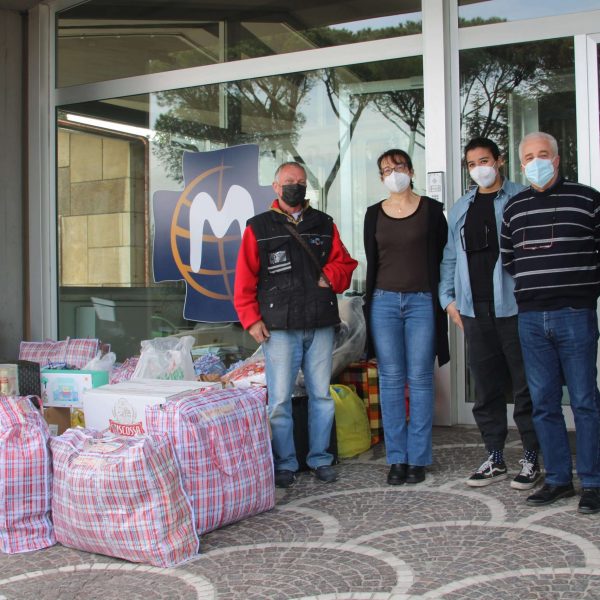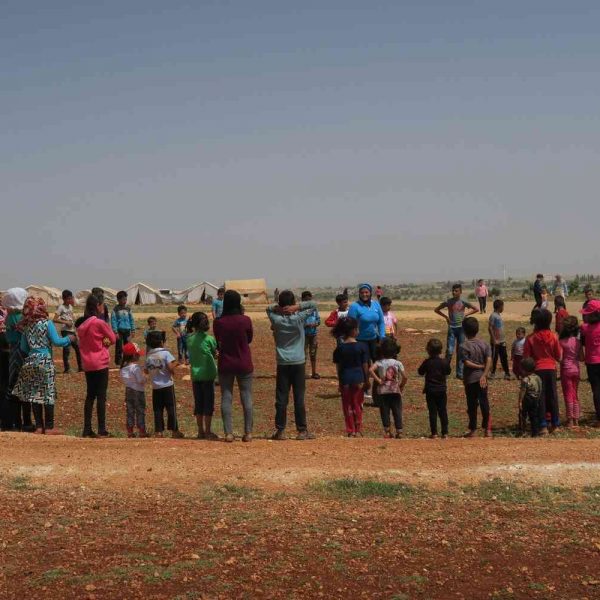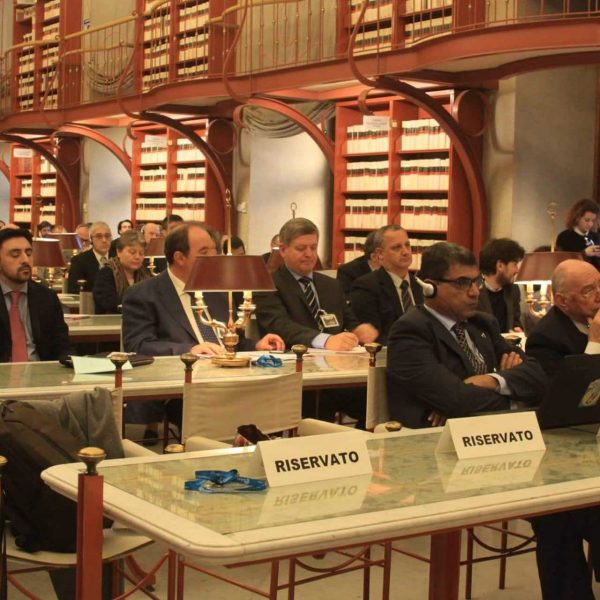The Autonomous Administration of Northeast Syria, more commonly known as Rojava, is a autonomous region in northern and northeastern Syria that is not officially recognized by the Syrian government. Formed in 2012, following events related to the Syrian civil war, it is considered by Kurdish nationalists to be one of the four parts of Kurdistan (Turkish, Iraqi, Syrian, Iranian).
Within the Syrian state territory lies the smallest of the four parts of Kurdistan. In the face of the outbreak of the bloody Syrian civil war in 2012, the Kurdish region of Rojava declared itself autonomous and since the following year has been experimenting with a form of self-government inspired by the principles of democracy, gender equality, multiculturalism, inclusion and ecology. A unique experiment in the world in the heart of a Middle East battered by war, brutal repression and fundamentalism. In 2014, the three cantons (Cizîrê, Kobane, Afrîn) adopted a legal charter valid for the whole society, the Social Contract: a document unprecedented in the Middle East, which rejects authoritarianism, militarism, centralism and the interference of religious authority in the civil life of the citizens of the different communities, while protecting each cultural peculiarity. Through the Contract, or Rojava Charter, the Syrian Kurds and the region’s ethnic-linguistic minorities have created a political system that is not a state, but a union of confederated popular assemblies.
The goal is a society based on the coexistence of different cultures and religions, ecology, feminism, social economy and popular self-defense. Rojava’s charter upholds freedom of religion, but categorically separates religion from the State, with the secular intent of building a political and administrative system that ensures peaceful coexistence while respecting the principles of freedom, justice, dignity and democracy. There are three primary aspects of the model implemented in Rojava:
- Democratic Confederalism
- Feminism
- Social ecology
DEMOCRATIC CONFEDERALISM
To best understand what Democratic Confederalism means, one must move just across the border to Kurdish-majority southeastern Turkey where, in 1978, Abdullah Ocalan founded the Marxist-Leninist PKK (Kurdish Workers’ Party) with the aim of creating an independent Kurdish socialist state within Turkish borders. The mid-1980s began a bloody conflict with Ankara that made the PKK the number one threat to Turkish national security. In 1999 Ocalan was arrested and jailed; to this day he is still in total isolation. Within Ӧcalan’s critique of contemporary society is the issue of gender, which is more than just a claim to rights. Women’s discrimination, according to the PKK leader, has its roots in the patriarchal structure of modern society and the historical union it has made with military culture. This combination has meant that belonging to the military class, and consequently being a man, guaranteed the recognition of a kind of first-class citizenship, making the typical patterns of male aggression a socially accepted term of comparison through which to measure the ability of the soldier and, more generally, the man. Such a conception of social roles has led to the idealization of the concept of masculinity, seen as linked to strength and war activity, conversely feminizing the concept of “weakness,” seen as alien to the male part of society (stereotype). Hence a sexist reading of war, which considers men as its only legitimate actors and has led women to be little involved in the wars themselves, or at any rate to play a marginal role in them.
The solution Ocalan has always proposed and continues to propose is to recover the values of organic society and at least part of its organizational structure. This is possible firstly by demolishing patriarchy and ensuring the substantive equality of men and women. The recovery of the principle of female power, which is more horizontal than the typically vertical power of the male, is possible because of the new centrality women acquire in public life. Assemblies allow an almost total politicization of collective life: from administration to justice, from defense to economics. Hence the concept of “democracy.” What matters is that the individual popular assembly is always given the widest possible freedom of action. Hence the noun “confederalism.”
Such a change breaks down the hierarchical mentality and the idea that everything or person around us is an object aimed at our satisfaction.
FEMINISM
Within this historical-political framework, the women’s story symbolizes the great struggle for Kurdish independence. For decades, women in Kurdistan have opposed repressive societies and governments: but only in recent years have they been recognized for their courage in defending their territories and for their leadership in local government. In fact, in Syrian Kurdistan, better known as Rojava, the women of the Kurdish Democratic Union Party (PYD) have been recognized for their all-female fighting force-a real force known as the Women’s Protection Unit (YPJ). Equality, equity, and feminism as cornerstones of society enable the transformation of relations between individuals from vertical to horizontal and point the way toward alternative forms of government to that of a state holding decision-making power that citizens lack instead.
In 2014, ISIS criminals had massacred the Kurdish population in both the Kurdistan of Syria and the Kurdistan of Iraq, and since then about three thousand women have been sold to the slave market; many of them have been subjected to genital mutilation in cities and villages controlled by the Caliphate. In all wars that have been fought and all wars that are still being fought today, in 2022, rape of women is practiced as a military offensive implemented to target the civilian population and humiliate them completely. This is one of the fundamental reasons why Kurdish women are on the front lines, to save their sisters and to defend their homeland, Kurdistan. Kurdish women have always played a very important role in the liberation struggle, both in ancient and recent history, having always struggled in all fields as sisters, as mothers and wives, alongside their men, becoming for this reason protagonists of change. The key to the role of Kurdish women is that of a “revolution within a revolution,” healthy and pure concept of female solidarity, team spirit, familiarity and unity for the protection and respect of rights that are not only part of women’s lives but of every human being. Therefore, the Kurdish female condition represents a progressive element in the Middle East area because Kurdish culture rejects a priori the traditional inferiority of women, perpetrated in the Islamic world. Kurdish women have come a long way; the parliament consists of a 30 percent share of women, there are women ministers, the main political parties include women in their leadership, as well as woman is the president of the regional parliament, a rarity in the Middle East. Honor killings are considered murder, human trafficking, female genital mutilation and child marriage are banned, and polygamy is allowed as it is accepted in Islam, but only by adhering to the strictest rules. Ever since the war broke out in Syria ten years ago, the pages of newspapers have been filled with the proud faces of Kurdish female fighters. The initial astonishment of journalists and the public at these young women in camouflage has certainly ignited curiosity and even admiration in the Western world, while at the same time arousing a feeling that has always been far removed from a deep awareness of the horror of war.
SOCIAL ECOLOGY
The third point underlying the Kurdish model is the building of a fully ecological and environmentally friendly society. Although other issues might seem more important, without the centrality of an ecological issue, life in the region would no longer be possible as they also heavily touch on economic aspects. Monocultures, for example, have brought consequences that are not only environmental, since vegetables and fruits must be imported from another region, affecting the economy of the area in this. Decentralization and implementation of autonomy in agriculture thus becomes part of solving an economic problem. Ecology commissions are being built at all levels of the council system. In this process it becomes evident that there are no top-down arrangements, but rather shared choices with the intention of creating grassroots structures capable of supporting and dealing with ecological issues. Steps forward, from the standpoint of environmental education, have been taken through the establishment of several nature parks. However, in a situation such as the Syrian civil war, between the conflict with Isis and the Turkish threat, it is still very difficult for the Autonomous Administration of North and East Syria to quickly implement the path of transformation from the old to the new model of economy. While the culture of feminism and direct democracy have reached an advanced stage, to date the Kurdish context has slowed the expansion of an integrated ecological system, although there has been undoubted progress.
In all three aspects under analysis, Rojava’s political system does not fully reflect Abdullah Ocalan’s democratic confederalism. While great strides have been made on the feminist issue, the construction of a fully ecological and sustainable society still remains an unreached-though in the process of being achieved-and it is difficult to understand whether the popular assemblies really count more than the central administration. Equally difficult is whether this is driven by the objective difficulties induced by the continuing conflict with Daesh or whether by any structural weaknesses inherent in democratic confederalism.




